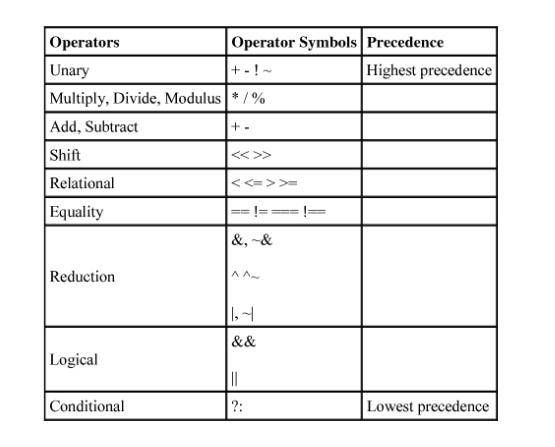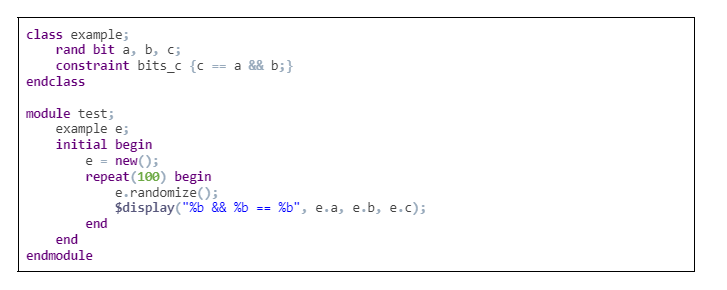Operator precedence and potential problems
The precedence of operators in Systemverilog can sometimes be counterintuitive. For reference, here’s the table of precedence (going from highest down to lowest):

Notice that the add and subtract operators have a higher precedence than the shift operators, so the result of “a << b + c” actually means “shift a left for b + c positions” instead of “shift a left for b positions and then add c”. In some way, shifting can be thought of as multiplying/dividing (integer division) by a power of 2, and that’s why it’s natural to assume that shifting will be done first. Here’s an example with a function that’s supposed to generate a 32-bit number with n LSB bits set to 1:

The output of the $display call is:

Instead of the expected:

Another case involves equality and logical operators. Let’s say that we have 3 single-bit variables a, b and c which have to be randomized so that c is 1 only if both a and b are 1. This could be a solution:

But since equality operators have priority over logical operators, the expression in the constraint means “make sure that a is equal to c and that b is true” rather than “set c to be equal to a && b”. That is why b will be fixed to 1, which is potentially a problem since the cases when b is 0 never appear:

The solution is to simply use brackets in appropriate places:


